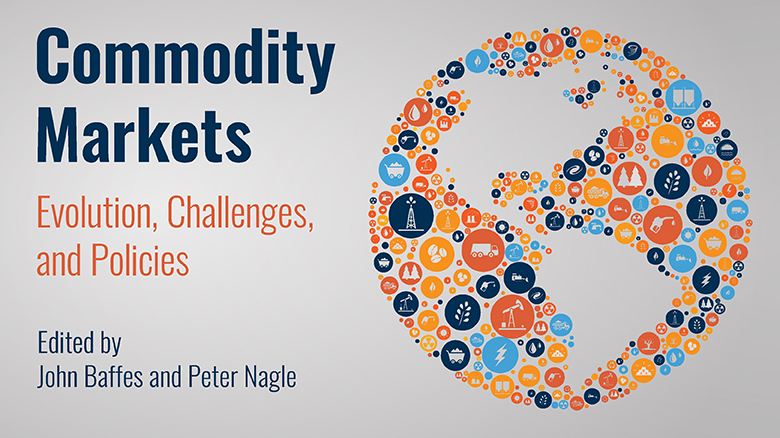From Tensions to Trends: How Global Events Shape Commodity Markets
Commodity markets are highly sensitive to global events, which can cause significant fluctuations in prices. From geopolitical tensions to natural disasters, various global occurrences impact supply, demand, and market sentiment. Understanding how these events influence commodity markets is crucial for investors, traders, and policymakers. This blog explores the key global events that affect commodity markets and how they shape market dynamics.
Key Global Events Influencing Commodity Markets
1. Geopolitical Tensions:
- Impact on Commodities: Geopolitical tensions, such as conflicts, wars, and trade disputes, can disrupt supply chains, restrict access to resources, and create uncertainty in the markets. These disruptions often lead to price volatility in commodities.
- Example: The ongoing conflict in Ukraine has significantly impacted global energy markets, causing spikes in oil and natural gas prices due to concerns over supply disruptions from Russia, a major energy exporter.
2. Natural Disasters:
- Impact on Commodities: Natural disasters, including hurricanes, earthquakes, floods, and droughts, can disrupt production and supply chains, leading to temporary shortages and price spikes in affected commodities.
- Example: Hurricanes in the Gulf of Mexico often disrupt oil and gas production, leading to temporary increases in energy prices.
3. Economic Sanctions:
- Impact on Commodities: Economic sanctions imposed by countries or international organizations can limit the availability of commodities from specific regions, affecting global supply and prices.
- Example: Sanctions on Iran have restricted its oil exports, reducing global supply and contributing to higher oil prices.
4. Global Pandemics:
- Impact on Commodities: Pandemics, such as COVID-19, can severely impact global demand and supply chains. Lockdowns, travel restrictions, and reduced economic activity can lead to decreased demand for certain commodities, while disruptions in production and logistics can create supply shortages.
- Example: The COVID-19 pandemic initially led to a sharp decline in oil demand and prices as travel and industrial activities plummeted. However, subsequent supply chain disruptions and recovery efforts have caused volatility in various commodity markets.
5. Trade Policies and Agreements:
- Impact on Commodities: Changes in trade policies, tariffs, and trade agreements can alter the flow of commodities between countries, impacting prices and market dynamics.
- Example: The US-China trade war led to the imposition of tariffs on a range of commodities, affecting prices and causing uncertainty in global markets for agricultural products, metals, and energy.
6. Technological Advancements:
- Impact on Commodities: Technological innovations can change the demand for certain commodities or create new markets altogether. Advances in extraction, production, and renewable energy technologies can influence commodity supply and demand.
- Example: The rise of electric vehicles has increased demand for lithium, cobalt, and other metals used in battery production, while decreasing long-term demand for fossil fuels.
7. Environmental Policies and Climate Change:
- Impact on Commodities: Environmental regulations and climate change initiatives can affect the production and consumption of commodities. Policies aimed at reducing carbon emissions can shift demand from fossil fuels to renewable energy sources.
- Example: The Paris Agreement and subsequent national commitments to reduce carbon emissions have accelerated investment in renewable energy, increasing demand for metals like lithium and rare earth elements used in clean energy technologies.
8. Political Instability:
- Impact on Commodities: Political instability in commodity-producing regions can disrupt production and export activities, leading to supply shortages and price increases.
- Example: Political turmoil in Venezuela has severely impacted its oil production capabilities, contributing to global supply constraints and price volatility in the oil market.

Understanding the Interplay Between Global Events and Commodity Markets
1. Supply and Demand Dynamics:
- Global events can cause immediate disruptions in supply or demand, leading to rapid changes in commodity prices. For example, natural disasters can halt production, while geopolitical tensions can restrict supply.
2. Market Sentiment and Speculative Activity:
- Investor sentiment is highly influenced by global events. Uncertainty and risk aversion can drive speculative activity in commodity markets, leading to increased volatility. Positive developments, on the other hand, can boost market confidence and stabilize prices.
3. Long-term Structural Changes:
- Some global events lead to long-term structural changes in commodity markets. Technological advancements and environmental policies, for instance, can permanently alter the demand landscape for certain commodities.
4. Regional vs. Global Impacts:
- The impact of global events can vary by region. While a geopolitical event in one part of the world may cause price spikes in a specific commodity globally, its effects may be more pronounced in regions directly involved or dependent on that commodity.
Case Studies of Global Events Impacting Commodity Markets
1. The Arab Spring (2010-2011):
- The Arab Spring led to significant political upheaval in several Middle Eastern and North African countries. The resulting instability and supply disruptions caused sharp increases in oil prices, highlighting the region’s critical role in global energy markets.
2. The Fukushima Nuclear Disaster (2011):
- The Fukushima disaster led to a global reassessment of nuclear energy, causing a temporary increase in demand for fossil fuels like natural gas and coal as countries reduced their reliance on nuclear power.
3. The COVID-19 Pandemic (2020-Present):
- The pandemic caused unprecedented disruptions in global supply chains and demand patterns. Oil prices initially plummeted due to reduced travel and industrial activity, but later recovered as economies reopened and production adjusted. Additionally, the pandemic accelerated the transition towards renewable energy, impacting long-term demand for traditional fossil fuels.
Conclusion
Global events play a critical role in shaping commodity markets, causing fluctuations in supply, demand, and prices. From geopolitical tensions and natural disasters to economic policies and technological advancements, various factors influence market dynamics. Understanding the interplay between these events and commodity prices is essential for market participants to navigate volatility and make informed decisions.
By staying informed about global developments and analyzing their potential impacts on commodities, traders, investors, and policymakers can better anticipate market trends and manage risks. In an interconnected world, the ability to adapt to changing circumstances and leverage opportunities arising from global events is key to success in the commodity markets.







